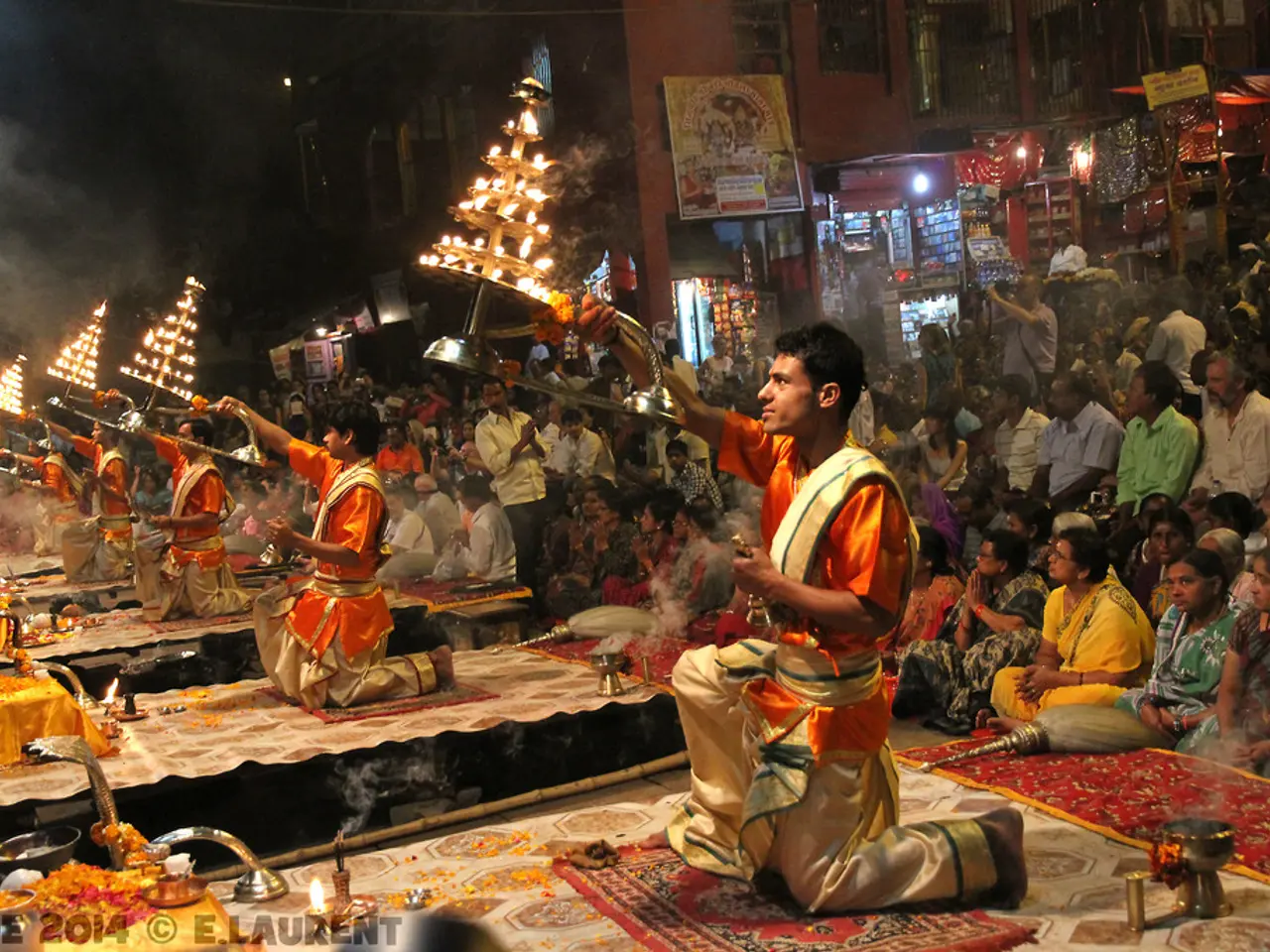Exploring Authentic Local Customs During Your Journeys Abroad
Exploring Culture Deeply: A Guide for Meaningful Travel Experiences
Traveling is more than just visiting landmarks and tourist spots. To truly immerse oneself in a culture and create meaningful experiences, it's essential to take a few practical steps.
Firstly, learning and using basic phrases in the local language can show respect and facilitate genuine connections with locals. Staying in a local home or homestay provides an authentic window into everyday routines, cooking, and customs beyond tourist sites. Eating where locals eat lets you experience true tastes and social dining culture, avoiding tourist-oriented restaurants.
Participating in cultural activities such as visiting indigenous communities, learning traditional crafts, joining local cooking sessions, and exploring healing practices offers an immersive understanding and respectful exchange with the host culture. Traveling slowly—spending more time in one place to absorb local rhythms, arts, and landscapes—fosters deeper appreciation than rushing through highlights.
Respecting local customs, etiquette, and heritage is crucial for meaningful cultural experiences. For instance, in Japan, removing shoes indoors isn't just practical—it honors cleanliness traditions. Dress codes matter at cultural events, such as covering shoulders at Thai temple ceremonies or wearing red during Ghana's Homowo festival.
Public transit puts travelers alongside commuters, offering opportunities to observe interactions, overhear conversations, and notice how people navigate their city. In Tokyo, riding the subway during rush hour offers a glimpse into workplace culture. Buses and trains in Istanbul serve sweet chai, sparking conversations between commuters.
Arriving early and staying late at festivals can lead to richer experiences and deeper cultural insights. Smaller gatherings can reveal equally rich stories, such as weekly fish auctions in Portugal or moonlit poetry readings in Iran.
Supporting community cooperatives helps preserve living traditions. Seeking workshops where masters share these skills can provide unique cultural experiences. Homestays or guesthouses run by residents offer firsthand insights into customs and local life.
Citymapper is an app that helps decode routes, but observing how others navigate public transit can provide additional insights. Listening more than speaking can help build relationships with residents. Visiting libraries for books about regional history or watching documentaries featuring actual residents can help understand local customs.
Some ceremonies remain private, and viewing them as trust-building can deepen future connections. Researching festivals can help understand whether they mark harvest cycles, historical victories, or spiritual milestones. Building trust with residents often unlocks access to unique cultural experiences, such as attending a village feast or learning ancestral drum patterns.
Markets like Bangkok's Or Tor Kor or Barcelona's La Boqueria reveal culinary traditions and allow travelers to taste authentic flavors. Asking open-ended questions about a resident's life, attending community events, or joining workshops can help connect with residents.
Respecting local customs and traditions, contributing to local initiatives, and maintaining cultural practices discovered during travel once home help keep the travel glow alive and preserve the learning and mindset gained from your experiences.
By following these tips, you can shift your role from a passive observer to an engaged guest, allowing you to feel the real heart of a place through human connections, sensory experiences, and meaningful participation rather than mere sightseeing.
In the guide for meaningful travel experiences, learning and using local language phrases is essential for forming genuine connections with locals, while staying in local homes or homestays offers an authentic insight into everyday routines.
Participating in cultural activities like visiting indigenous communities, learning traditional crafts, or attending community events immerses travelers in local customs and fosters respectful exchange with the host culture.





